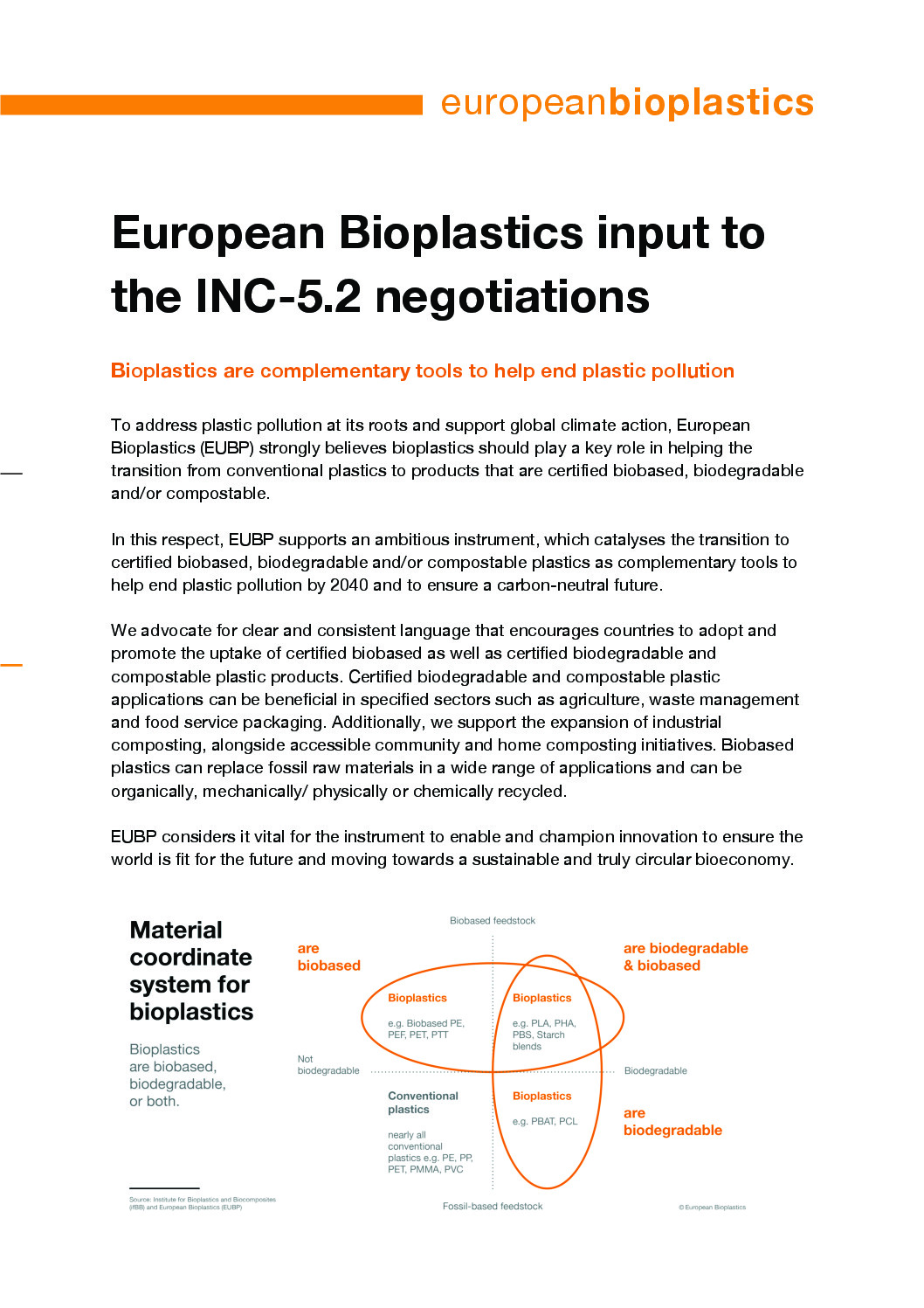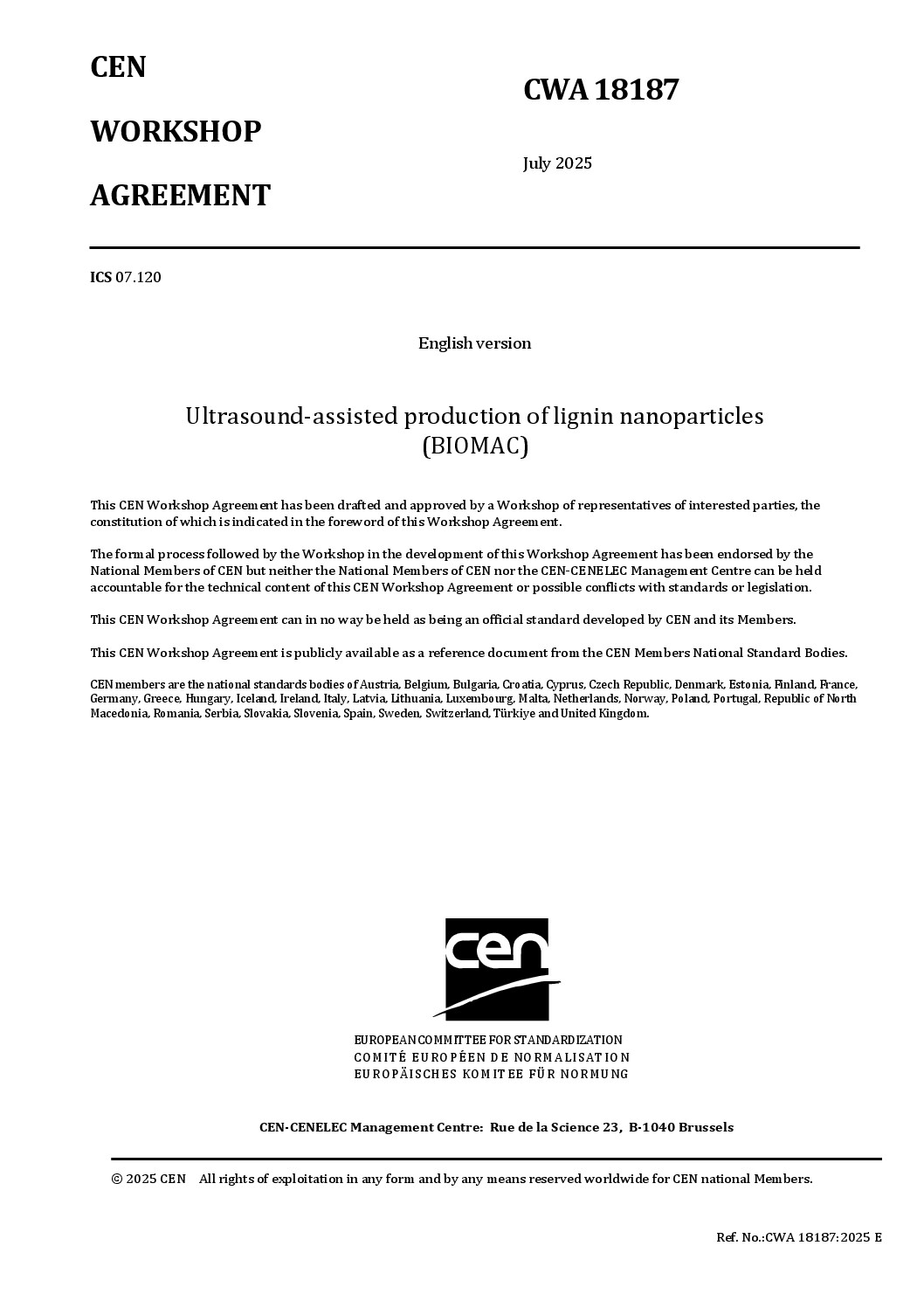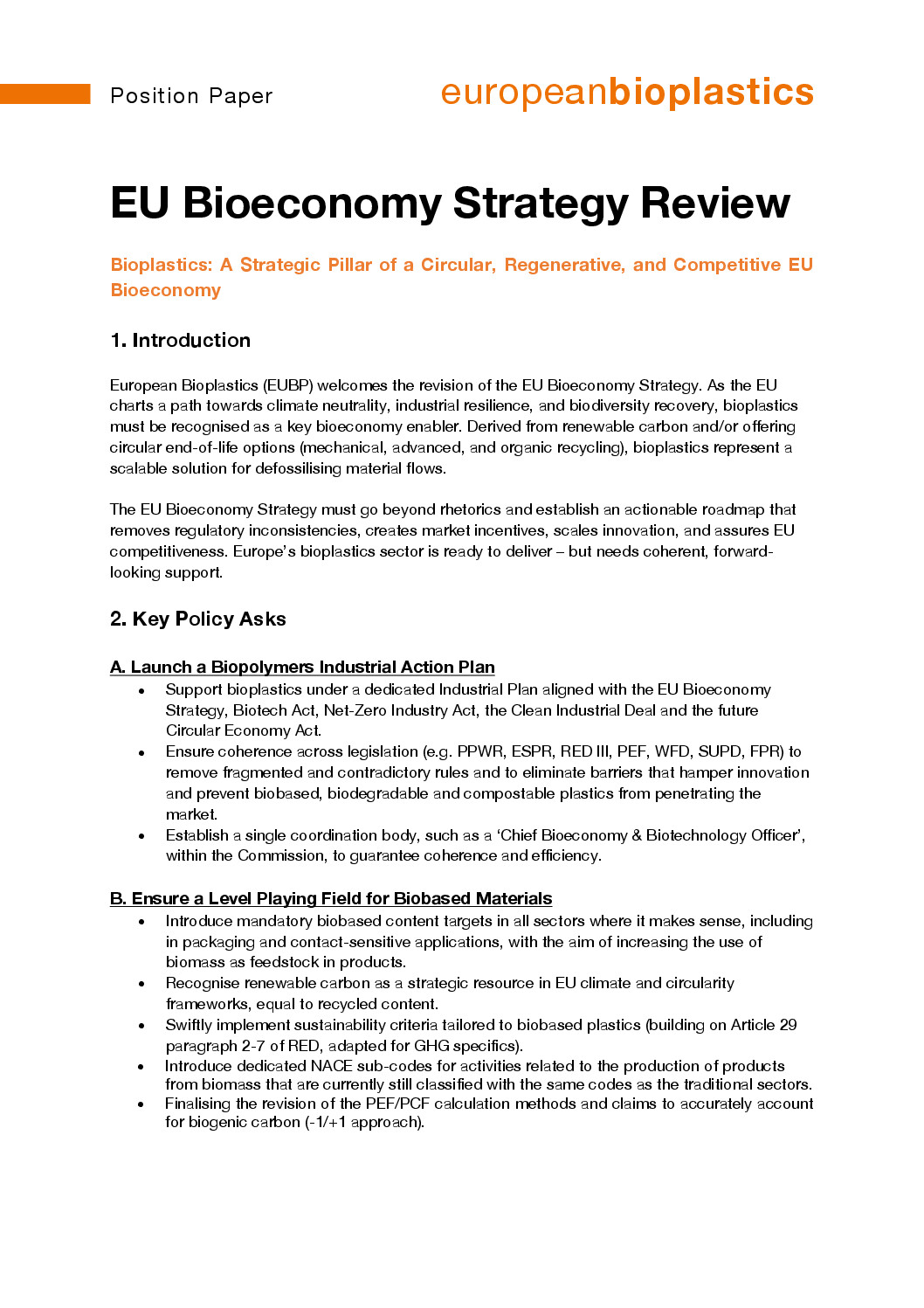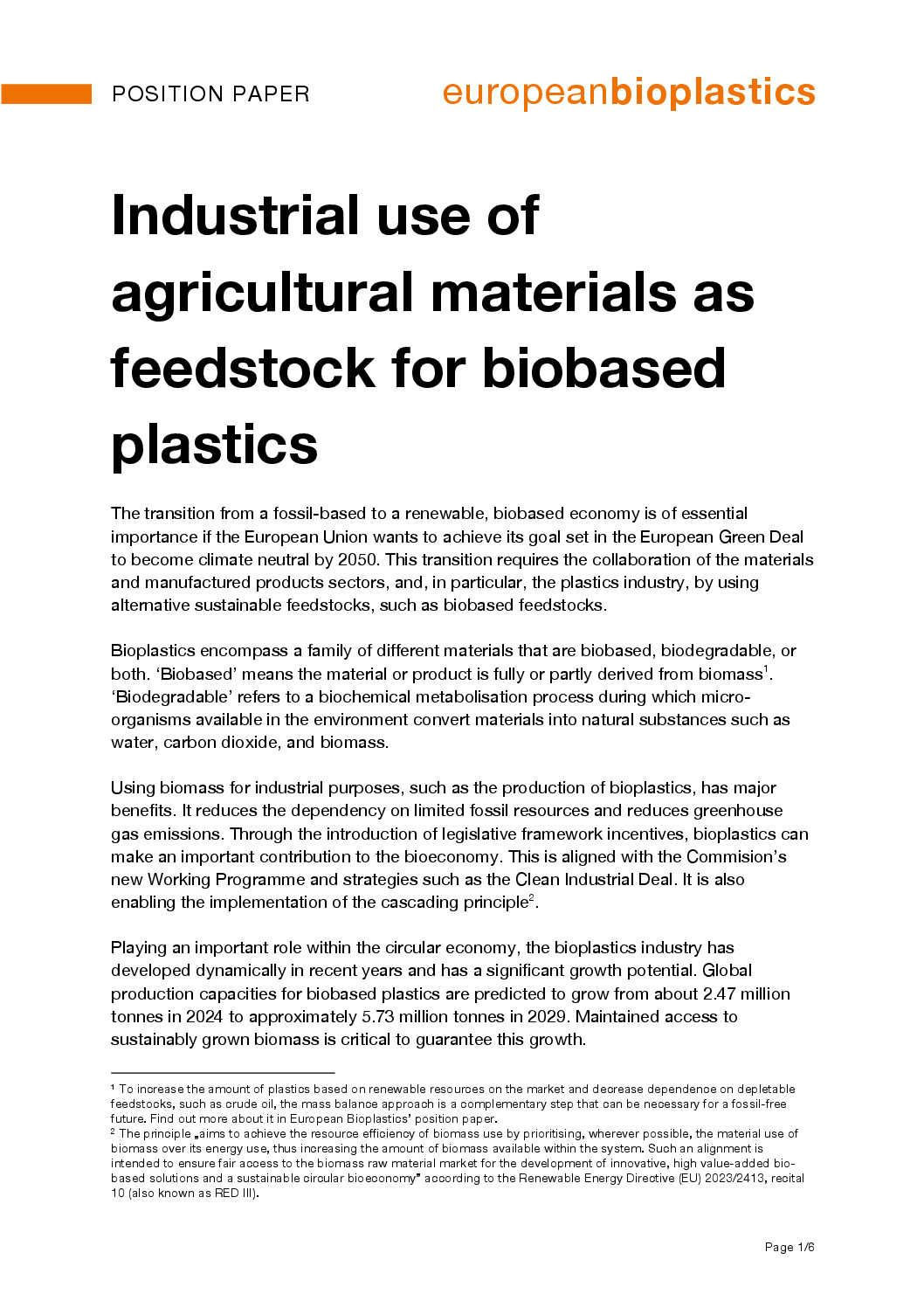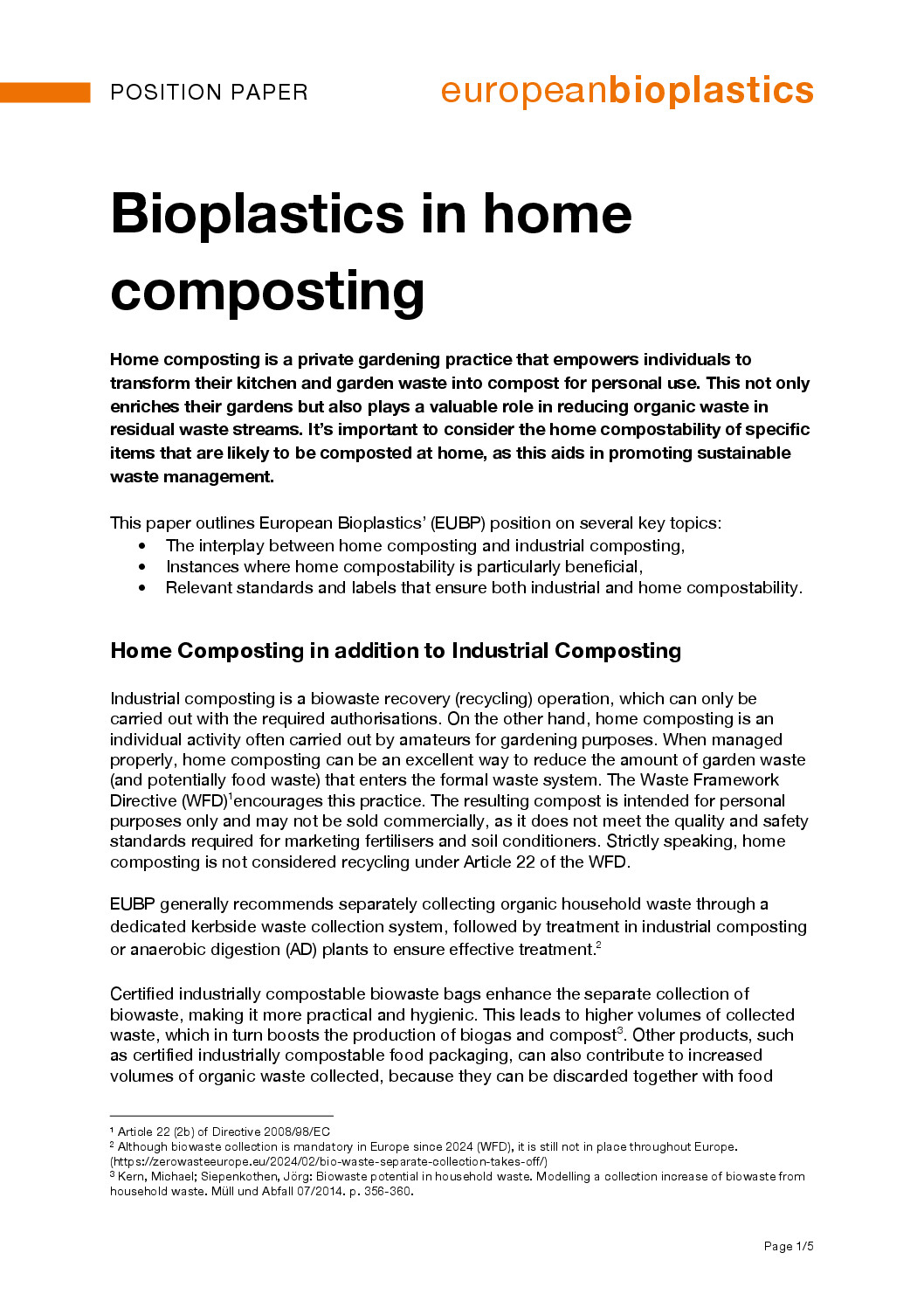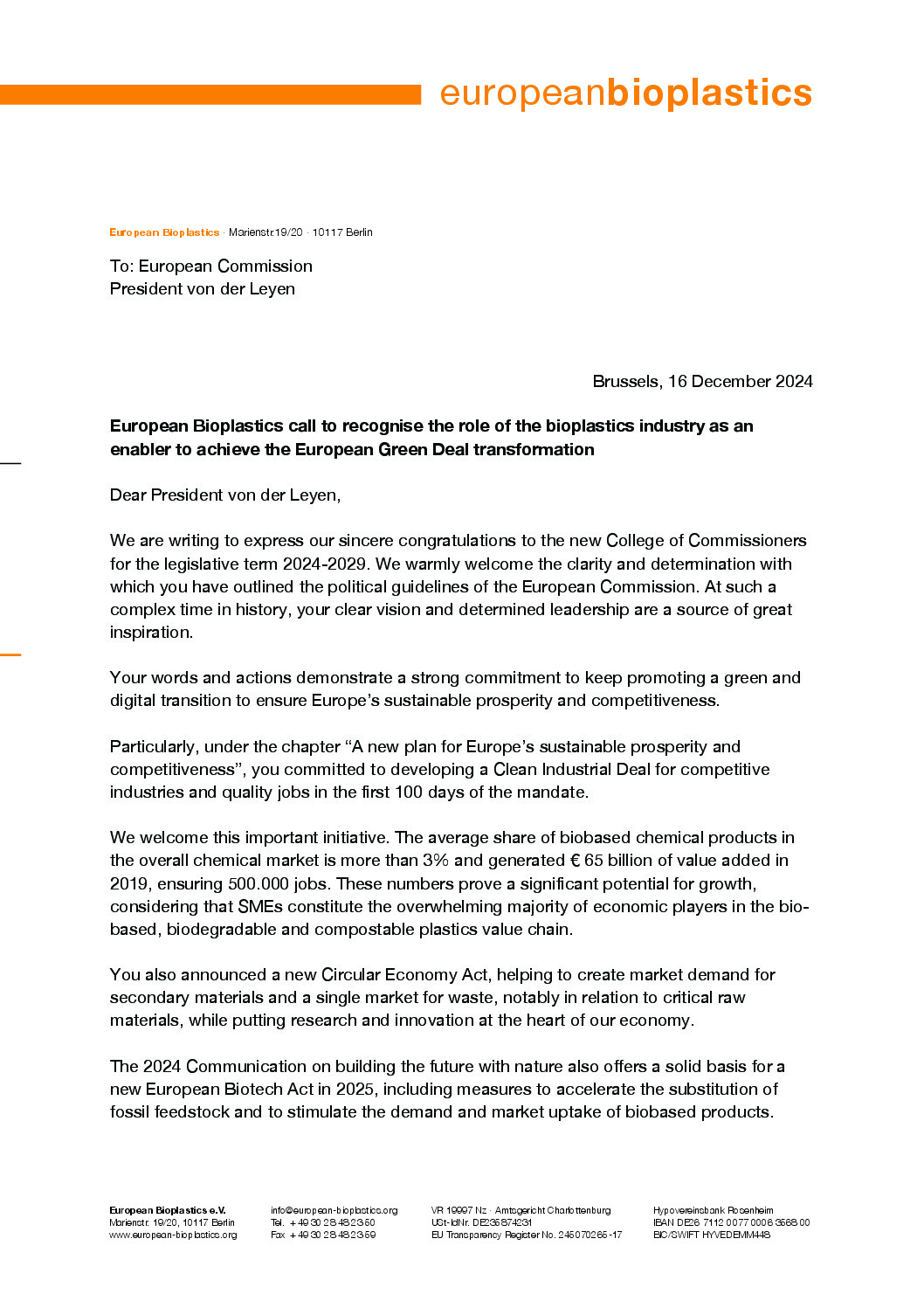European Bioplastics input to the INC-5.2 negotiations
Open the document Bioplastics are complementary tools to help end plastic pollution To address plastic pollution at its roots and support global climate action, European Bioplastics (EUBP) strongly believes bioplastics should play a key role in helping the transition from conventional plastics to products that are certified biobased, biodegradable and/or compostable. In this [...]
